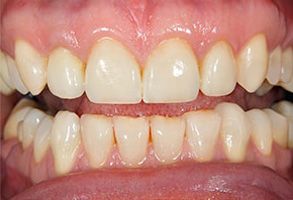
Does Gum Regrow? Top 5 Ways To Make Your Gum Regrow
Gum disease is a very real and very common problem. It affects millions of people every year, and it can lead to some serious health problems if it’s not treated. But what if you’ve already lost your gum? Is there any way to get it back? “Does gum regrow?” Regardless of how much gum surgery you’ve had, there is no guarantee that your gums will grow back after receding. This is because gum material cannot be stretched or reshaped like the skin on the back of your hand. One technique that claims to make gums grow back is the pinhole surgical technique, but the effectiveness of this treatment is not proven.
This blog post will explore the top five ways to make your gum regrow. Stay tuned for some helpful tips!
Eat More Foods That Are Rich In Vitamin C
There are a lot of foods that are high in vitamin C, which is great for your gum health. You can consume them in your everyday diet or by taking dietary supplements. These supplements are available in health and nutrition stores and supermarkets. But you must first ensure that you get a proper amount of vitamin C in your diet.
Eating more citrus fruits is one of the best ways to get vitamin C in your diet. These fruits are rich in vitamin C, which is great for your gums because they help them stay strong. They also promote the production of collagen protein, a key component of the gums. And it would help if you tried to limit acidic food items, as they irritate and damage your gums and can leave your teeth more exposed to tooth decay.
Avocados are an excellent source of vitamin C. Besides their antioxidant properties, avocados are a good source of fiber and other essential nutrients. Consuming avocados regularly will help you retain your gums and teeth healthy. Moreover, they are also loaded with phosphorus, a mineral essential for the maintenance of tooth enamel.
If you have bleeding gums, you may have a microvascular problem in your body. It could also be a sign of vitamin C deficiency. Microvascular conditions include tiny blood vessels throughout the body. The right amount of vitamin C can reverse these micro-bleeding problems, restoring your gums to their original state.
Avoid Consuming Too Much Sugary Food And Drinks
It is important to avoid eating too many sugary foods and drinks, especially soda. These sugary items encourage the overgrowth of harmful bacteria in the mouth, which may worsen gum disease and recession. Consuming too much sugar also promotes enamel erosion.
Sugary foods and beverages also create acidic by-products that harm gums and teeth. These acids feed bacteria, leading to gum disease, receding gums, and expensive dental procedures. Since most people cannot avoid sugar completely, they must maintain good oral hygiene and regular dental checkups to prevent damage.
Sugars in non-liquid forms, like candy and sodas, can be especially damaging to teeth since they don’t dissolve in saliva. The results are sticky residue on teeth that saliva cannot remove. These food and drink products can also contribute to gingivitis, which develops when gums inflamed and bleed.
Quit Smoking If You Are A Smoker
Quitting smoking is a major step towards better oral health. Smokers face many dental complications, including gum disease. But the good news is that the bad effects of smoking are temporary. There are many treatments available to help smokers regain good oral health.

Smokers’ gums are dark due to a condition called smoker’s melanosis. Although it’s harmless, it’s still a reason to stop smoking. The American Academy of Oral Medicine says there is no cure for a smoker’s melanosis, but quitting smoking can restore tissue color.
When you smoke, your gums are exposed to bacteria from plaque. These bacteria can irritate your gums and cause them to bleed during brushing. If left untreated, gum disease may eventually lead to tooth loss. In addition, smoking weakens your body’s natural ability to fight infection, making it more difficult for your gums to heal and prevent more serious conditions. It also masks the signs of gum disease, making it harder for you to identify and treat it.
The best way to quit smoking is to make changes to your lifestyle. For instance, try eating less sugary foods which contain high nicotine levels. Quitting smoking can also improve blood circulation in your body. This will improve your heart and lung health. Moreover, you’ll feel more energetic as your blood pressure and pulse rate decrease.
Consider Using A Sugar-Free gum That Has xylitol
To fight tooth decay, consider using sugar-free gum with xylitol A. This sweetener is not only pleasant to chew but also works to reduce the acidity in your mouth. Moreover, it boosts the flow of saliva, which is essential for healthy gums. This substance is present naturally in some fruits and vegetables. It is also used in chewing gums as an artificial sweetener. Many consumers prefer xylitol-containing products because of the perceived reduced calorie intake. It has been linked with weight loss, as it stimulates the release of less insulin than table sugar.
Another benefit of chewing xylitol-containing gum is its ability to prevent dental caries. It reduces plaque buildup and can even reverse gingivitis. It is especially good for those with a high risk of tooth decay. Furthermore, it reduces odors and helps you have fresher breath.
Researchers conducted a systematic review of published data to determine whether xylitol affects plaque. They searched for randomized, controlled trials conducted on healthy people between 1971 and 2020. It was determined that xylitol could reduce dental plaque compared to sorbitol gum, a sugar-free gum substitute. The findings, however, need further research.
How to Use Vitamin C to Heal Your Gums?
There are many benefits of vitamin C for your gums. This vitamin’s antioxidant properties help fight off infection and help your gums heal and grow strong. You can use topical vitamin C powder to treat your gums. Apply this powder to the affected areas several times a day until the infection is gone.
You can also take vitamin C or vitamin D dietary supplements to treat gum inflammation. They are available at your local health and nutrition store or supermarket. Vitamin C is an essential nutrient for healthy gums. It helps the gums absorb calcium and phosphorus and prevents gum disease.

Another vitamin C benefit is reduced bleeding of gums. If your gums bleed when you brush or floss, your diet lacks vitamin C. In addition to reducing bleeding, Vitamin C can also prevent heart disease and promote dental health. So, it is important to ensure you get adequate amounts of this essential vitamin daily.
Another benefit of Vitamin C is that it fights inflammation. Antioxidants can fight free radicals, which can cause inflammation in the gums. Vitamin C can help prevent gum disease and even enhance the effectiveness of professional treatments.
Stimulate Blood Circulation In Your gums By Gently massaging:
Healthy blood circulation is crucial for the health of virtually every part of the body, including the gums. It ensures that every cell receives the necessary nutrients and oxygen it needs and helps keep the immune system functioning at optimum levels. It also helps to keep the teeth and gums in great condition, preventing dental decay and periodontal disease. Fortunately, there are a few simple ways to stimulate your gums’ blood circulation.
Massaging your gums will increase blood circulation to the area. This will help the gum tissue heal faster, fight off infection, and improve overall health. Additionally, the massage will dislodge plaque and food particles that can cause soreness and inflammation. While some people don’t like the idea of receiving a massage, many people find it relaxing and soothing.
Frequently Asked Questions:
How long does it take for gum to regrow?
Depending on the severity of the tooth loss, it can take anywhere from a few weeks to several months for the gum tissue to regenerate fully. In some cases, surgery may be required to help speed up the process.
What are some home remedies for regrowing gum tissue?
A number of home remedies have been shown to be effective in stimulating the growth of new gum tissue. These include green tea, aloe vera, and ginger. Additionally, massaging the gums with a soft toothbrush can also help to promote regrowth.
What is the success rate of gum regrowth?
While the success rate of gum regeneration varies depending on the cause and severity of the tooth loss, it is generally considered quite high. In most cases, patients can expect significant improvements in their gum health within a few months.
Are there any risks associated with gum regeneration?
There are very few risks associated with gum regeneration. Sometimes, patients may experience minor irritation or swelling at the injection site. However, this is typically short-lived and resolves within a few days.
The answer to the question “does gum regrow” is a resounding yes! While it may not happen overnight, your gums will eventually return to their original state with consistent care and attention. Follow the above steps to ensure optimal gum health and regrowth. Thanks for reading!
